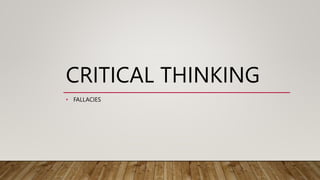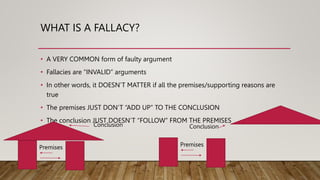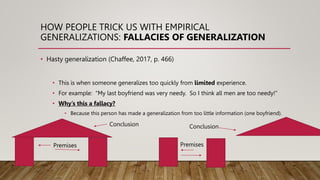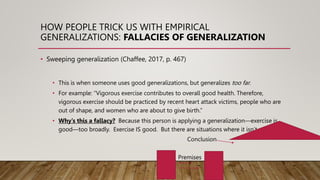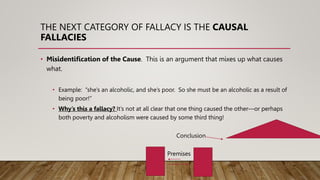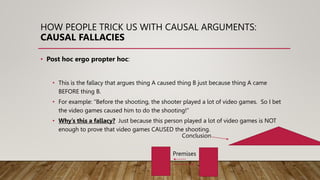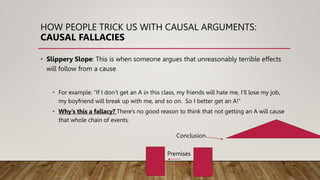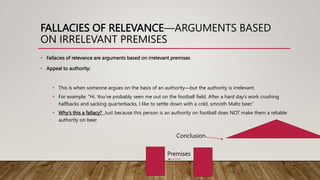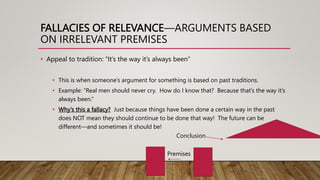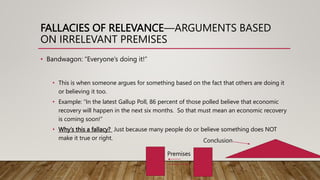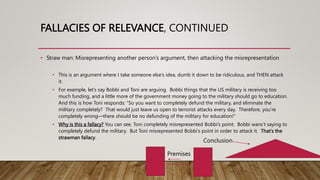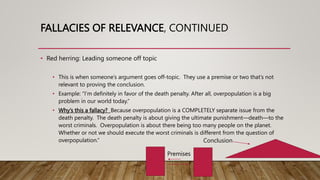The document discusses different types of logical fallacies, which are faulty or invalid arguments. It provides examples of several categories of fallacies, including fallacies of generalization where conclusions are reached based on insufficient evidence or examples that are too broad. It also discusses causal fallacies where questionable or unclear causal relationships are assumed. Additionally, it covers fallacies of relevance where arguments are based on premises that are irrelevant to the conclusion. Specific fallacies discussed include hasty generalization, sweeping generalization, false dilemma, questionable cause, misidentification of cause, post hoc ergo propter hoc, slippery slope, appeal to authority, appeal to tradition, bandwagon, appeal to fear, appeal to ignorance, begging the question, and strawman. The
